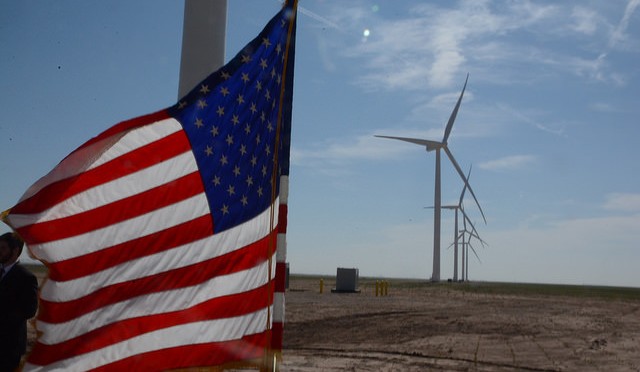Governor Ralph Northam and Apex Clean Energy today announced that the Commonwealth of Virginia has entered into an agreement to purchase the output of the approximately 75 megawatt Rocky Forge Wind, located in Botetourt County. The agreement represents the purchase of the full capacity of the project, which will become Virginia’s first operating onshore wind power project when it begins commercial operations, expected in 2021.
“This is a historic day in the Commonwealth—not only has Virginia signed the largest state contract for renewable energy in the country, this agreement also includes 75 megawatts of wind energy from Virginia’s first-ever onshore wind farm,” said Governor Northam. “I’m proud that our state government is leading by example in cutting emissions, investing in clean energy, and ensuring a healthy world for future generations.”
The agreement will help the Commonwealth meet its goal of procuring at least 30% of the electricity required by the state’s agencies and executive branch from renewable sources by 2022. Rocky Forge Wind also advances the state’s progress toward its targets of powering 30% of Virginia’s electric grid with carbon-free electricity by 2030 and 100% by 2050. The agreement was facilitated by Dominion Energy using a renewable power purchase mechanism approved by the State Corporation Commission.
“Rocky Forge Wind represents years of hard work and collaboration among local and state-level stakeholders and will deliver immediate economic and climate-related benefits to the Commonwealth of Virginia,” said Mark Goodwin, Apex Clean Energy president and CEO. “We are pleased to help the Commonwealth—home to our headquarters—achieve its momentous goals, to further establish Virginia as a clean energy leader, and to provide a meaningful economic development opportunity for Botetourt County.”
Notably, Rocky Forge Wind will drive significant investment in Southwest Virginia. This major entry into the clean energy economy builds on a recent trend of manufacturing-related job creation and capital investment in Botetourt County, bolstering an optimistic local outlook toward continued economic growth.
“Rocky Forge Wind demonstrates Botetourt County’s continued leadership in bringing new technology and investment to Southwest Virginia,” said Delegate Terry Austin (R-19th District). “Rocky Forge will bring substantial local economic benefits and is well-sited. It is the perfect choice for Virginia’s first wind farm.”
Rocky Forge Wind will generate $20 million to $25 million in total tax revenue for the state and county, up to 250 jobs during construction, approximately 7 long-term operations and maintenance positions, and enough clean energy to power the equivalent of approximately 20,000 average U.S. homes while displacing approximately 65,000 tons of carbon dioxide annually, according to the EPA’s AVERT tool.
“With Virginia one of only nine states with no utility-scale wind, the Roanoke Group of the Sierra Club celebrates, and stands in full support of, Rocky Forge Wind,” said Dan Crawford of the Roanoke Group of the Sierra Club. “Apex Clean Energy’s strong commitment to environmental stewardship and concern for the local community has earned our respect and support as the project enters the next phase of development.”
Apex Clean Energy develops, constructs, and operates utility-scale wind and solar power facilities across North America. Our mission-driven team of more than 200 renewable energy experts uses a data-focused approach and an unrivaled portfolio of projects to create solutions for the world’s most innovative and forward-thinking customers.
Nearly 7.5 million customers in 18 states energize their homes and businesses with electricity or natural gas from Dominion Energy (NYSE: D), headquartered in Richmond, Va. The company is committed to sustainable, reliable, affordable and safe energy and is one of the nation’s largest producers and transporters of energy with about $100 billion of assets providing electric generation, transmission and distribution, as well as natural gas storage, transmission, distribution and import/export services. The company expects to cut generating fleet carbon dioxide emissions 80 percent by 2050 and reduce methane emissions from its gas assets 50 percent by 2030.


